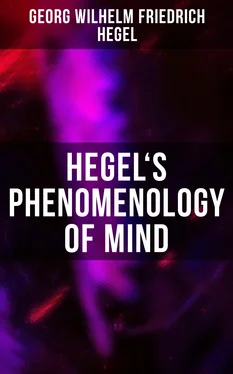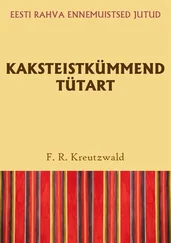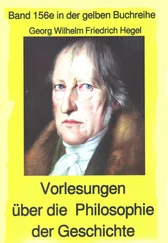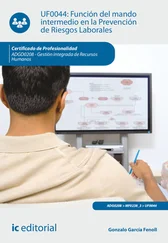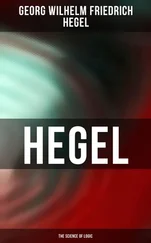Georg Wilhelm Friedrich Hegel - Hegel's Phenomenology of Mind
Здесь есть возможность читать онлайн «Georg Wilhelm Friedrich Hegel - Hegel's Phenomenology of Mind» — ознакомительный отрывок электронной книги совершенно бесплатно, а после прочтения отрывка купить полную версию. В некоторых случаях можно слушать аудио, скачать через торрент в формате fb2 и присутствует краткое содержание. Жанр: unrecognised, на английском языке. Описание произведения, (предисловие) а так же отзывы посетителей доступны на портале библиотеки ЛибКат.
- Название:Hegel's Phenomenology of Mind
- Автор:
- Жанр:
- Год:неизвестен
- ISBN:нет данных
- Рейтинг книги:4 / 5. Голосов: 1
-
Избранное:Добавить в избранное
- Отзывы:
-
Ваша оценка:
- 80
- 1
- 2
- 3
- 4
- 5
Hegel's Phenomenology of Mind: краткое содержание, описание и аннотация
Предлагаем к чтению аннотацию, описание, краткое содержание или предисловие (зависит от того, что написал сам автор книги «Hegel's Phenomenology of Mind»). Если вы не нашли необходимую информацию о книге — напишите в комментариях, мы постараемся отыскать её.
Hegel's Phenomenology of Mind — читать онлайн ознакомительный отрывок
Ниже представлен текст книги, разбитый по страницам. Система сохранения места последней прочитанной страницы, позволяет с удобством читать онлайн бесплатно книгу «Hegel's Phenomenology of Mind», без необходимости каждый раз заново искать на чём Вы остановились. Поставьте закладку, и сможете в любой момент перейти на страницу, на которой закончили чтение.
Интервал:
Закладка:
For the rest, at a time when the universal nature of spiritual life has become so very much emphasized and strengthened, and the mere individual aspect has become, as it should be, correspondingly a matter of indifference, when, too, that universal aspect holds, by the entire range of its substance, the full measure of the wealth it has built up, and lays claim to it all, the share in the total work of mind that falls to the activity of any particular individual can only be very small. Because this is so, the individual must all the more forget himself, as in fact the very nature of science implies and requires that he should; and he must, moreover, become and do what he can. But all the less must be demanded of him, just as he can expect the less from himself, and may ask the less for himself.
Introduction
Table of Contents
It is natural to suppose that, before philosophy enters upon its subject proper-namely, the actual knowledge of what truly is-it is necessary to come first to an understanding concerning knowledge, which is looked upon as the instrument by which to take possession of the Absolute, or as the means through which to get a sight of it. The apprehension seems legitimate, on the one hand that there may be various kinds of knowledge, among which one might be better adapted than another for the attainment of our purpose-and thus a wrong choice is possible: on the other hand again that, since knowing is a faculty of a definite kind and with a determinate range, without the more precise determination of its nature and limits we might take hold on clouds of error instead of the heaven of truth.
This apprehensiveness is sure to pass even into the conviction that the whole enterprise which sets out to secure for consciousness by means of knowledge what exists per se, is in its very nature absurd; and that between knowledge and the Absolute there lies a boundary which completely cuts off the one from the other. For if knowledge is the instrument by which to get possession of absolute Reality, the suggestion immediately occurs that the application of an instrument to anything does not leave it as it is for itself, but rather entails in the process, and has in view, a moulding and alteration of it. Or, again, if knowledge is not an instrument which we actively employ, but a kind of passive medium through which the light of the truth reaches us, then here, too, we do not receive it as it is in itself. but as it is through and in this medium. In either case we employ a means which immediately brings about the very opposite of its own end; or, rather, the absurdity lies in making use of any means at all. It seems indeed open to us to find in the knowledge of the way in which the instrument operates, a remedy for this parlous state; for thereby it becomes possible to remove from the result the part which, in our idea of the Absolute received through that instrument, belongs to the instrument, and thus to get the truth in its purity. But this improvement would, as a matter of fact, only bring us back to the point where we were before. If we take away again from a definitely formed thing that which the instrument has done in the shaping of it, then the thing (in this case the Absolute) stands before us once more just as it was previous to all this trouble, which, as we now see, was superfluous. If the Absolute were only to be brought on the whole nearer to us by this agency, without any chance being, wrought in it, like a bird caught by a limestick, it would certainly scorn a trick of that sort, if it were not in its very nature, and did it not wish to be, beside us from the start. For a trick is what knowledge in such a case would be, since by all its busy toil and trouble it gives itself the air of doing something quite different from bringing about a relation that is merely immediate, and so a waste of time to establish. Or, again, if the examination of knowledge, which we represent as a medium, makes us acquainted with the law of its refraction, it is likewise useless to eliminate this refraction from the result. For knowledge is not the divergence of the ray, but the ray itself by which the truth comes in contact with us; and if this be removed, the bare direction or the empty place would alone be indicated.
Meanwhile, if the fear of falling into error introduces an element of distrust into science, which without any scruples of that sort goes to work and actually does know, it is not easy to understand why, conversely, a distrust should not be placed in this very distrust, and why we should not take care lest the fear of error is not just the initial error. As a matter of fact, this fear presupposes something, indeed a great deal, as truth, and supports its scruples and consequences on what should itself be examined beforehand to see whether it is truth. It starts with ideas of knowledge as an instrument, and as a medium; and presupposes a distinction of ourselves from this knowledge. More especially it takes for granted that the Absolute stands on one side, and that knowledge on the other side, by itself and cut off from the Absolute, is still something real; in other words, that knowledge, which, by being outside the Absolute, is certainly also outside truth, is nevertheless true — a position which, while calling itself fear of error, makes itself known rather as fear of the truth.
This conclusion comes from the fact that the Absolute alone is true or that the True is alone absolute, It may be set aside by making the distinction that a know ledge which does not indeed know the Absolute as science wants to do, is none the less true too; and that knowledge in general, though it may possibly be incapable of grasping the Absolute, can still be capable of truth of another kind. But we shall see as we proceed that random talk like this leads in the long run to a confused distinction between the absolute truth and a truth of some other sort, and that “absolute”, “knowledge”, and so on, are words which presuppose a meaning that has first to be got at.
With suchlike useless ideas and expressions about knowledge, as an instrument to take hold of the Absolute, or as a medium through which we have a glimpse of truth, and so on (relations to which all these ideas of a knowledge which is divided from the Absolute and an Absolute divided from knowledge in the last resort lead), we need not concern ourselves. Nor need we trouble about the evasive pretexts which create the incapacity of science out of the presupposition of such relations, in order at once to be rid of the toil of science, and to assume the air of serious and zealous effort about it. Instead of being troubled with giving answers to all these, they may be straightway rejected as adventitious and arbitrary ideas; and the use which is here made of words like “absolute”, “knowledge”, as also “objective” and “subjective”, and innumerable others, whose meaning is assumed to be familiar to everyone, might well be regarded as so much deception. For to give out that their significance is universally familiar and that everyone indeed possesses their notion, rather looks like an attempt to dispense with the only important matter, which is just to give this notion. With better right, on the contrary, we might spare ourselves the trouble of talking any notice at all of such ideas and ways of talking which would have the effect of warding off science altogether; for they make a mere empty show of knowledge which at once vanishes when science comes on the scene.
But science, in the very fact that it comes on the scene, is itself a phenomenon; its “coming on the scene” is not yet itself carried out in all the length and breadth of its truth. In this regard, it is a matter of indifference whether we consider that it (science) is the phenomenon because it makes its appearance alongside another kind of knowledge, or call that other untrue knowledge its process of appearing. Science, however, must liberate itself from this phenomenality, and it can only do so by turning against it. For science cannot simply reject a form of knowledge which is not true, and treat this as a common view of things, and then assure us that itself is an entirely different kind of knowledge, and holds the other to be of no account at all; nor can it appeal to the fact that in this other there are presages of a better. By giving that assurance it would declare its force and value to lie in its bare existence; but the untrue knowledge appeals likewise to the fact that it is , and assures us that to it science is nothing. One barren assurance, however, is of just as much value as another. Still less can science appeal to the presages of a better, which are to be found present in untrue knowledge and are there pointing the way towards science; for it would, on the one hand, be appealing again in the same way to a merely existent fact; and, on the other, it would be appealing to itself, to the way in which it exists in untrue knowledge, i.e. to a bad form of its own existence, to its appearance, rather than to its real and true nature ( an und für sich ). For this reason we shall here undertake the exposition of knowledge as a phenomenon.
Читать дальшеИнтервал:
Закладка:
Похожие книги на «Hegel's Phenomenology of Mind»
Представляем Вашему вниманию похожие книги на «Hegel's Phenomenology of Mind» списком для выбора. Мы отобрали схожую по названию и смыслу литературу в надежде предоставить читателям больше вариантов отыскать новые, интересные, ещё непрочитанные произведения.
Обсуждение, отзывы о книге «Hegel's Phenomenology of Mind» и просто собственные мнения читателей. Оставьте ваши комментарии, напишите, что Вы думаете о произведении, его смысле или главных героях. Укажите что конкретно понравилось, а что нет, и почему Вы так считаете.
